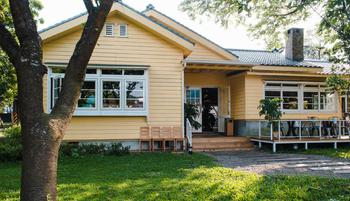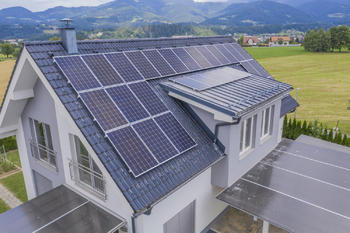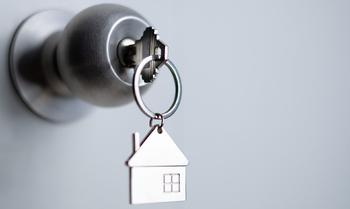How to Make Your Home
Weather-Proof: 5 Helpful Tips.
Extreme weather can easily destroy homes that do not have a strong foundation and are not built to withstand extreme weather conditions. A well-built home is both weather-proof and energy-efficient. This type of design ensures that the home is as airtight as possible, reducing the amount of energy needed to heat and cool the home. To protect against calamities and harsh weather conditions, homeowners should also incorporate the use of good insulation, energy-efficient windows, and eco-friendly appliances. Efficient lighting and weather-proof mechanical systems are also a plus.
Important Qualities of a Weather-Proof Home.
If you hope to find a weather-proof property in Canberra, make sure your next home has the following qualities:
Durable Materials
The most important quality of a weather-proof home is using durable, weather-resistant materials for construction and finishing. Materials such as metal, concrete, and aluminum siding, as well as impact-resistant windows, can stand up to extreme weather conditions and protect your home from potential damage.
Proper Insulation
Proper insulation is essential for a weather-proof home. Insulation helps reduce energy costs by keeping the interior of the home comfortable, regardless of the weather outside. It also helps keep moisture and heat from entering the home, preventing mold and mildew growth, and helping to maintain a healthy indoor air quality. Insulation should be placed in the attic, walls, and floors of the home to ensure maximum efficiency.
Sealed Roof
A sealed roof helps protect the home from rain and snow, as well as from heat and cold. Proper caulking and flashing should be used to ensure that the roof is properly sealed. A sealed roof also helps keep pests and rodents out of the home. Proper gutter and drainage systems should be used to ensure that the roof is draining properly. Additionally, regular inspections should be done to check for any potential leaks.
Quality Ventilation
Good ventilation is also important to ensure that the home is well-ventilated, while still keeping out any moisture or drafts. This can be achieved by having windows that can be opened and closed to regulate the air flow, as well as through the use of fans and air conditioning units.
Waterproofing
Waterproofing the exterior of the home can help protect it from water damage, while also helping to prevent mold and mildew. This can be done by applying a waterproof sealant, such as a silicone-based sealant, to the exterior walls and foundation. The sealant should be regularly inspected and maintained to ensure it remains effective. Gutters and downspouts should be installed to direct water away from the home.
Simple Reminders for Homeowners
Some of the most important steps that homeowners can take to protect their homes from extreme weather include:
- Install Weather Stripping. Weather stripping is an inexpensive material you can place around your windows, doors, and other openings to help keep wind, rain, and snow outside.
- Inspect Your Roof. Make sure your roof is in good condition. Have a professional come to inspect your roof at least once a year and make any necessary repairs or replacements.
- Check Your Gutters and Downspouts. Clean your gutters and downspouts regularly to ensure that water is properly draining away from your home.
- Install Window Film. Window film is a thin, transparent film that can be applied to the interior of your windows to help insulate them and reduce air infiltration.
- Add Insulation. Adding insulation to your attic and walls can help keep warm air in and cold air out during the winter months.
Final Thoughts: Why Buy a Weather-Proof Home
A weather-proof home is important because it helps protect the occupants from the elements and extreme weather conditions. Weather-proofing a home can help prevent water damage, mold growth, and energy loss. It can also help reduce heating and cooling costs by better insulating the home and preventing air leaks. Whether you wish to buy a best value residential or investment property in Canberra, extensive protection against extreme weather should sit at the top of your priority list. Feel free to consult our expert buyers advocates for advice.
Most recent blog articles
The Best Long-Term Strategies for Your Investment Property in Canberra
Successful long-term investment property in Canberra requires careful planning, diligence and a commitment to sound investment principles
Read MoreThe Different Types of Investment Property and Their Pros and Cons
Choosing the right investment property requires careful consideration of several key factors. Firstly, define your investment goals: are you seeking rental income, property appreciation, or a mix of both
Read MoreThe Right Time to Buy a Property in Canberra: 8 Important Reminders
Buying your first property is an exciting venture, but it's essential to proceed with caution and avoid potential pitfalls
Read MoreHow a Sustainable Property Can Help Reduce Your Utility Bills
By opting for a sustainable lifestyle, you not only secure your financial future but also play a crucial role in creating a greener and more sustainable environment
Read MoreProperty Purchasing Tips for Growing Families: Top 5 Qualities of a Start-Up Home
We will explore the top five qualities of a start-up home for growing families to ensure a smooth transition into a space that fosters happiness and harmony.
Read More10 Benefits of Renting Out Your Property: Becoming a Landlord
The idea of being a landlord might seem daunting at first, but with proper planning and understanding, it can offer numerous benefits and financial opportunities.
Read More







